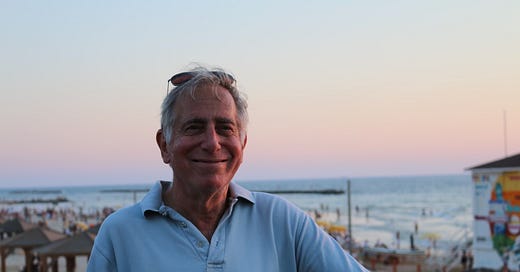In this searing Tel Aviv Diary episode, veteran journalist Bradley Burston (kibbutz founder, former IDF combat medic, Gaza correspondent, Reuters peace-talks reporter, and founding editor/columnist at Haaretz.com) sits down with Mark to ask the blunt question: How did we get to a war that’s still grinding on nearly two years later—and why hasn’t Israel moved on from October 7?
Burston argues that Prime Minister Netanyahu’s political timetable and Hamas’s strategic interests have too often aligned: both gain from prolonging the conflict and blocking a two-state horizon. He and Marc dissect Israel’s failure to grasp how the world now sees Gaza—hunger, devastation, and a reputational free fall—and the government’s inability (or unwillingness) to craft a credible “day after” plan. They also confront the hard new talk on the far right about sacrificing the hostages, the Likud’s internal power plays, and the growing possibility that Hamas simply doesn’t want a deal.
Looking ahead, Burstonn sketches what a post-Netanyahu, centrist coalition would have to do fast: invite a Saudi/Emirati/EU–backed framework, consider confederation models, and prepare for a generation of Israeli soldiers coming home fundamentally changed. It’s a conversation about accountability, exhausted certainties, and the faint—but essential—hope that the country can still be rebuilt for our grandchildren, if not for us.
Topics include:
Why the war keeps going—and who benefits
Netanyahu’s political calculus vs. October 7 accountability
Gaza, famine imagery, and Israel’s collapsing global standing
Hostages, the far right’s new rhetoric, and moral red lines
Can a U.S.- and Gulf-backed confederation revive a political horizon?
The generational shock that could reset Israeli politics
Listen, subscribe, and leave a review on Apple Podcasts or Spotify.







Share this post